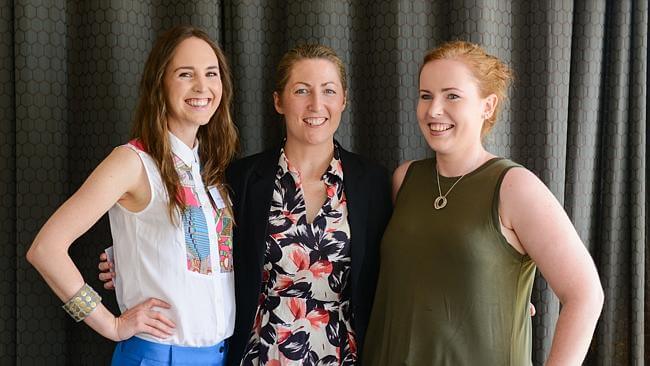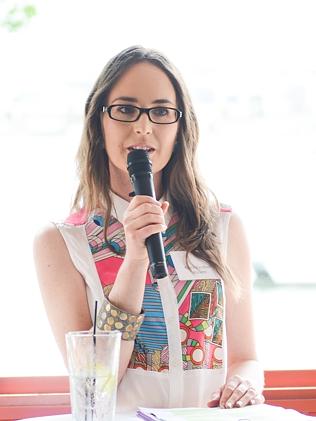Melanoma patient Kathy Gardiner speaks at event to highlight concern over disease
Source: Quest Community Newspapers Brisbane, November 2014

Source: Quest Cimmunity Newspapers
Kathy Gardiner should be planning a wedding with her boyfriend, pursuing a career or relishing in the joys of new motherhood.
Instead the 33-year-old from Yeronga is battling advanced metastatic melanoma, a disease that will kill more than 1500 people this year. Ms Gardiner was first diagnosed at the age of 25 with malignant melanoma in a mole that suddenly appeared on her right forearm.
HOW SERIOUSLY DO YOU TAKE THE SLIP, SLOP, SLAP MESSAGE?

Source: Quest Community newspapers
The disease lay dormant for seven years before reappearing in the form of tumours all over her body.
More tests in January this year confirmed the cancer had spread to her lungs.
Ms Gardiner and Melanoma Patients Australia (MPA) advocate Tilly Ryan were special guests at a morning tea organised by Brisbane Federal Liberal MP Teresa Gambaro on Wednesday to raise awareness of the illness.
It was held the same day a world-first clinical trial of the anti-PD-1 drug was announced by the Melanoma Institute Australia.
Ms Ryan outlined the importance of the slip, slop, slap message and of lobbying the government to ensure lifesaving medicines, already in use overseas, are introduced quickly into Australia.
She said the incidences of melanoma had increased 44 per cent since 2000 and those in the 15-39 year age group were most affected.
“It is arguable there is more diagnosis because more people are getting their skin checked.
“In younger generations, the slip slop slap campaign has had some influence. The campaign has been successful, however, prevention is only one aspect
“We also need early detection, getting skin checks and being vigilant about skin chances — unfortunately some people will get melanoma despite taking steps to protect their skin.”
Ms Ryan said patients diagnosed with advanced melanoma are given an eight to 10 month life expectancy and urged the government to expedite the approval process for drugs already approved by the US Food and Drug Administration.
For Ms Gardiner access to an immunotherapy clinical trial granted on compassionate grounds has seen early success.
“I have 16 tumours in my lungs. After six treatments, I have one every three weeks, there has been a significant reduction in size of the tumours,” she said.
“There was one gobstopper-sized tumour on my abdomen that is a shadow of its former self.
“It gives you hope. There are always going to be some hurdles on the journey but when you get any positive news that’s a big win.”
Ms Gardiner said it was “extremely frustrating” to know of drugs available in the world that cannot be accessed without significant financial cost.
She said directors of The Naked Gardiner Foundation, connecting to a blog she created of the same name, had secured funding to send her to America for treatment before she was granted access to the trial.
